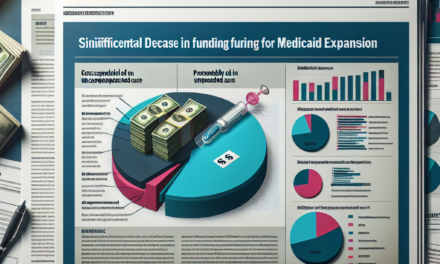Judge Allows FTC Case Against Caremark, Express Scripts, and Optum Rx to Proceed
The Federal Trade Commission (FTC) has taken a significant step in its ongoing efforts to regulate the pharmaceutical industry by allowing a case against three major pharmacy benefit managers (PBMs)—Caremark, Express Scripts, and Optum Rx—to proceed. This legal action raises critical questions about the practices of these companies and their impact on drug pricing, competition, and consumer choice. In this article, we will explore the implications of this case, the role of PBMs in the healthcare system, and the broader context of pharmaceutical regulation in the United States.
The Role of Pharmacy Benefit Managers (PBMs)
Pharmacy Benefit Managers (PBMs) serve as intermediaries between insurers, pharmacies, and drug manufacturers. Their primary role is to manage prescription drug benefits on behalf of health insurers and employers. While PBMs claim to reduce costs and improve access to medications, their practices have come under scrutiny for potentially contributing to higher drug prices and limiting patient access to necessary medications.
- Cost Management: PBMs negotiate discounts and rebates with drug manufacturers, which they claim helps lower costs for consumers. However, the extent to which these savings are passed on to consumers is often debated.
- Formulary Design: PBMs create formularies, which are lists of covered medications. The design of these formularies can significantly influence which drugs are accessible to patients and at what cost.
- Pharmacy Networks: PBMs establish networks of pharmacies that patients can use to fill prescriptions. This can limit patient choice and affect the availability of certain medications.
- Clinical Management: Many PBMs implement clinical management programs to ensure that patients receive appropriate medications. While this can improve health outcomes, it can also lead to restrictions on access to certain drugs.
- Transparency Issues: One of the most significant criticisms of PBMs is their lack of transparency regarding pricing and rebates. This opacity can lead to higher costs for consumers and a lack of accountability.
Understanding the role of PBMs is crucial to grasping the implications of the FTC’s case against Caremark, Express Scripts, and Optum Rx. As these companies manage a significant portion of the prescription drug market, their practices can have far-reaching effects on drug pricing and access to medications.
The FTC’s Allegations Against Caremark, Express Scripts, and Optum Rx
The FTC’s case against these three PBMs centers on allegations of anti-competitive practices that may harm consumers and stifle competition in the pharmaceutical market. The commission argues that the actions of these PBMs have led to inflated drug prices and reduced access to essential medications.
- Rebate Practices: The FTC alleges that the rebate practices of these PBMs create a system where drug manufacturers are incentivized to raise prices to provide larger rebates, ultimately leading to higher costs for consumers.
- Formulary Manipulation: The commission claims that these PBMs manipulate formularies to favor certain drugs over others, often based on the size of the rebates offered rather than the therapeutic value of the medications.
- Market Concentration: The FTC has raised concerns about the concentration of market power among these PBMs, which may limit competition and lead to higher prices for consumers.
- Impact on Independent Pharmacies: The practices of these PBMs may disproportionately affect independent pharmacies, which struggle to compete with larger chains that have more favorable contracts with PBMs.
- Consumer Harm: Ultimately, the FTC argues that the actions of these PBMs harm consumers by increasing out-of-pocket costs and limiting access to necessary medications.
The allegations made by the FTC highlight the complex dynamics of the pharmaceutical market and the potential consequences of PBM practices on consumer health and financial well-being. As the case progresses, it will be essential to examine the evidence presented and its implications for the future of PBMs and drug pricing in the United States.
The Impact of the Case on Drug Pricing and Access
The ongoing case against Caremark, Express Scripts, and Optum Rx has significant implications for drug pricing and access to medications in the United States. As the FTC seeks to address potential anti-competitive practices, the outcome of this case could reshape the landscape of the pharmaceutical industry.
- Potential for Lower Drug Prices: If the FTC’s allegations are proven, it could lead to reforms that promote greater transparency and competition among PBMs, potentially resulting in lower drug prices for consumers.
- Increased Access to Medications: A ruling against these PBMs could enhance access to a broader range of medications, particularly for patients who rely on independent pharmacies that may be disadvantaged by current PBM practices.
- Changes in PBM Practices: The case could prompt PBMs to reevaluate their practices, leading to more consumer-friendly policies and greater accountability in their dealings with drug manufacturers and pharmacies.
- Regulatory Reforms: The outcome of this case may inspire further regulatory reforms aimed at increasing transparency and competition in the pharmaceutical market, potentially influencing future legislation.
- Consumer Awareness: As the case unfolds, it may raise public awareness about the role of PBMs in drug pricing, leading consumers to advocate for more equitable practices in the healthcare system.
The implications of this case extend beyond the immediate parties involved. The outcome could set a precedent for how PBMs operate and how they are regulated, ultimately affecting millions of Americans who rely on prescription medications.
Case Studies: The Impact of PBM Practices on Consumers
To better understand the implications of the FTC’s case against Caremark, Express Scripts, and Optum Rx, it is essential to examine real-world examples of how PBM practices have affected consumers. Several case studies illustrate the challenges faced by patients in navigating the complex landscape of prescription drug pricing.
- Case Study 1: Insulin Pricing – Insulin is a critical medication for millions of Americans with diabetes. However, prices for insulin have skyrocketed in recent years, leading to significant financial burdens for patients. Many attribute this increase to the rebate practices of PBMs, which incentivize manufacturers to raise prices to offer larger discounts. As a result, patients often face high out-of-pocket costs, even with insurance coverage.
- Case Study 2: Access to Specialty Medications – Specialty medications, which are often high-cost treatments for complex conditions, can be subject to restrictive formulary management by PBMs. Patients requiring these medications may find themselves facing prior authorization hurdles or being steered toward less effective alternatives, impacting their health outcomes.
- Case Study 3: Independent Pharmacies – Independent pharmacies often struggle to compete with larger chains that have favorable contracts with PBMs. This can lead to reduced access for patients who prefer to use local pharmacies, as they may not be able to offer the same prices or access to medications.
- Case Study 4: Mental Health Medications – Patients seeking mental health medications may encounter challenges due to formulary restrictions imposed by PBMs. These restrictions can limit access to essential treatments, exacerbating mental health issues for those in need.
- Case Study 5: The Role of Advocacy Groups – Advocacy groups have emerged to address the challenges posed by PBM practices. These organizations work to raise awareness about the impact of drug pricing on patients and advocate for policy changes that promote transparency and competition in the pharmaceutical market.
These case studies highlight the real-world consequences of PBM practices on consumers, underscoring the importance of the FTC’s case in addressing these issues. As the legal proceedings unfold, it is crucial to consider how the outcomes may influence the experiences of patients across the country.
The Future of Pharmaceutical Regulation in the United States
The FTC’s case against Caremark, Express Scripts, and Optum Rx is part of a broader movement toward increased regulation of the pharmaceutical industry in the United States. As concerns about drug pricing and access continue to grow, policymakers are exploring various strategies to address these challenges.
- Legislative Initiatives: In recent years, lawmakers have introduced various bills aimed at reducing drug prices and increasing transparency in the pharmaceutical market. These initiatives often focus on regulating PBM practices and ensuring that consumers benefit from negotiated discounts.
- State-Level Reforms: Some states have taken the lead in implementing reforms aimed at regulating PBMs. These efforts include requiring greater transparency in pricing and limiting the ability of PBMs to impose restrictive formulary practices.
- Public Awareness Campaigns: Advocacy groups and consumer organizations are working to raise awareness about the impact of PBM practices on drug pricing. These campaigns aim to educate the public about their rights and encourage them to advocate for more equitable practices.
- Collaboration with Healthcare Providers: There is a growing recognition of the need for collaboration between PBMs, healthcare providers, and patients to ensure that medication access is prioritized. This collaborative approach may lead to more patient-centered policies.
- Future Legal Challenges: The outcome of the FTC’s case may set a precedent for future legal challenges against PBMs and other entities in the pharmaceutical industry. As consumers become more aware of their rights, they may be more likely to pursue legal action against practices that they perceive as harmful.
The future of pharmaceutical regulation in the United States is likely to be shaped by the outcomes of cases like the one against Caremark, Express Scripts, and Optum Rx. As stakeholders continue to advocate for change, it is essential to monitor developments in this area and consider their implications for consumers and the healthcare system as a whole.
Conclusion
The FTC’s decision to allow its case against Caremark, Express Scripts, and Optum Rx to proceed marks a pivotal moment in the ongoing debate over drug pricing and access to medications in the United States. As the case unfolds, it has the potential to reshape the landscape of pharmacy benefit management and influence the future of pharmaceutical regulation.
Through a comprehensive examination of the role of PBMs, the allegations made by the FTC, and the real-world impact of these practices on consumers, we gain valuable insights into the complexities of the pharmaceutical market. The case serves as a reminder of the importance of transparency, competition, and accountability in ensuring that patients have access to affordable medications.
As we look ahead, it is crucial for consumers, policymakers, and advocacy groups to remain engaged in the conversation surrounding drug pricing and access. The outcome of this case could set a precedent for future reforms and ultimately lead to a more equitable healthcare system that prioritizes the needs of patients.




